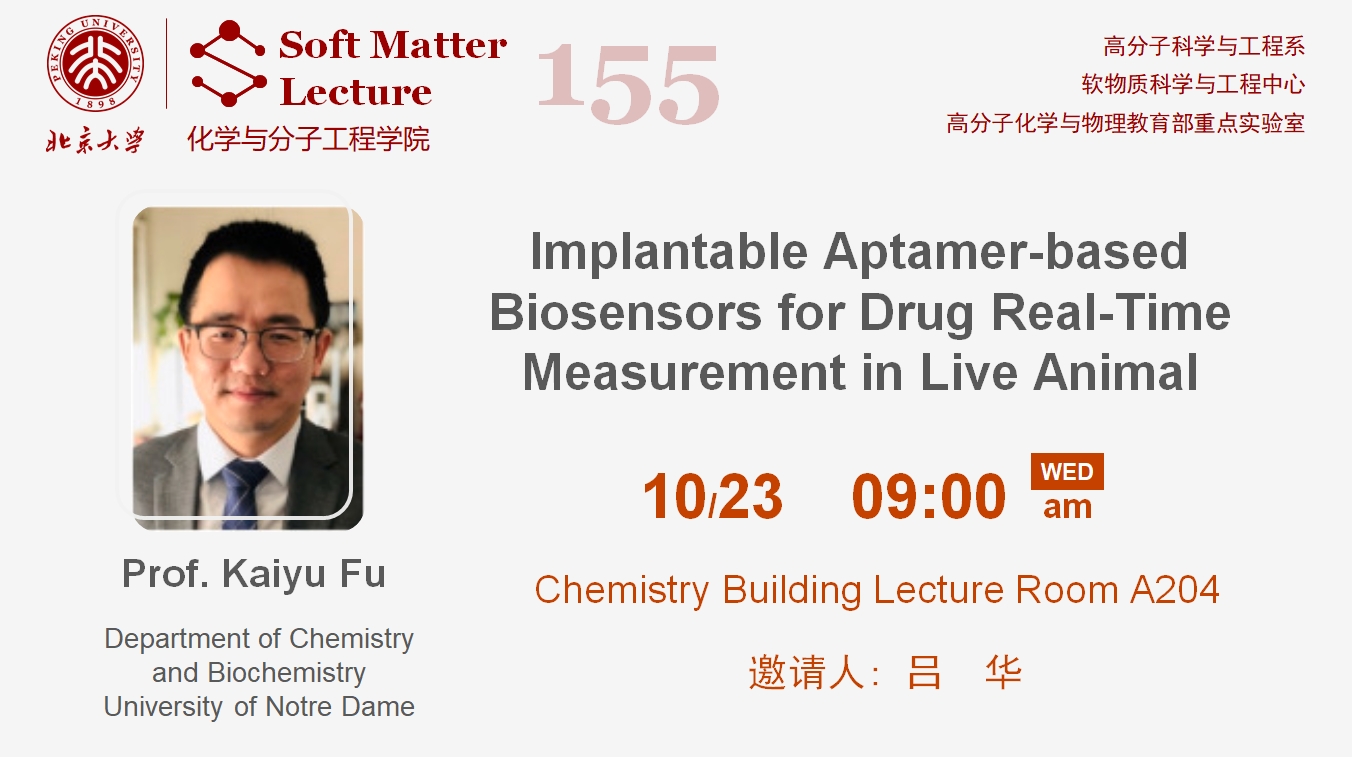
Abstract
In recent years, structure-switching aptamer-based sensors have become a powerful alternative to enzyme-based and antibody-based biosensing methods. Over the past decade, they have been extensively utilized for continuously detecting biomarkers in vitro and in vivo from various biological fluids with sub-minute temporal resolution spanning from hours to days. Typically, biosensors attach aptamers modified with redox labels to the sensing surface. Target binding then triggers conformational changes in the aptamer, resulting in a difference in electrochemical signal output. However, these biosensors often encounter cross-reactivity issues when assessing drugs from biological matrices containing chemically similar molecules, such as precursors or metabolites. In this talk, I will introduce an implantable microelectrode array sensor capable of collecting tissue-based pharmacokinetic data by measuring intratumoral pharmacokinetics from multiple sites. The sensor continuously monitors doxorubicin (DOX) concentrations, a chemotherapy drug, in a rodent model. Results reveal significant differences in pharmacokinetics inside the tumor microenvironment compared to the circulation system, which has potential implications for drug efficacy and safety. Additionally, I will propose a new technique for distinguishing molecules with slight variations in chemical composition using cross-reactive aptamer probes by modifying the charge state of the surface. As an example, this method can differentiate between DOX and several chemically analogous analytes, including its principal metabolite, doxorubicinol (DOXol). Finally, I will conclude the presentation with a biosensor design with potential applications for long-term in vivo characterization of cancer therapies and other applications.
Biography
Kaiyu Fu is an Assistant Professor of Chemistry and Biochemistry at the University of Notre Dame. He is a co-author of more than 30 papers, one book chapter and one US patent. He is one of recipients of ACS Division of Analytical Chemistry Graduate Fellowship and Chinese Government Award for Outstanding Self-financed Students Abroad. He obtained his B.E. (2011) and M.S. (2014) in polymer science and engineering from Sichuan University and Fudan University, respectively. He then received his Ph.D. (2018) in analytical chemistry from Notre Dame, followed by postdoctoral training at the School of Engineering and School of Medicine at Stanford University until 2022. Currently, he has broad interests in electrochemical biosensors, polymeric materials, nanoscience, and microfabrication.